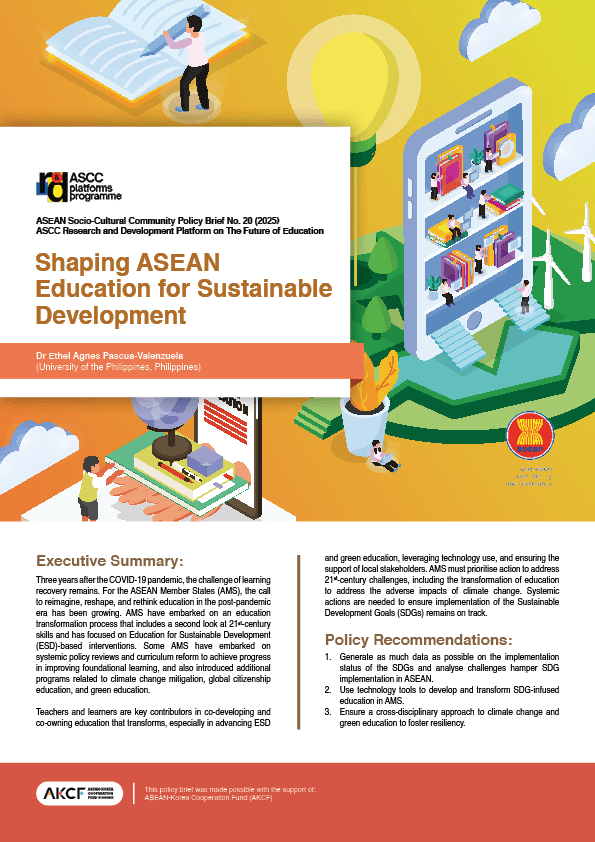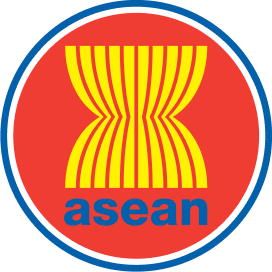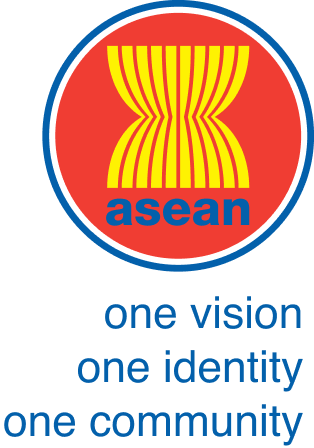

EXECUTIVE SUMMARY
Three years after the COVID-19 pandemic, the challenge of learning recovery remains. For the ASEAN Member States (AMS), the call to reimagine, reshape, and rethink education in the post-pandemic era has been growing. AMS have embarked on an education transformation process that includes a second look at 21st-century skills and has focused on Education for Sustainable Development (ESD)-based interventions. Some AMS have embarked on systemic policy reviews and curriculum reform to achieve progress in improving foundational learning, and also introduced additional programs related to climate change mitigation, global citizenship education, and green education.
Teachers and learners are key contributors in co-developing and co-owning education that transforms, especially in advancing ESD and green education, leveraging technology use, and ensuring the support of local stakeholders. AMS must prioritise action to address 21st-century challenges, including the transformation of education to address the adverse impacts of climate change. Systemic actions are needed to ensure implementation of the Sustainable Development Goals (SDGs) remains on track.
RECOMMENDATIONS
- Generate as much data as possible on the implementation status of the SDGs and analyse challenges hamper SDG implementation in ASEAN.
- Use technology tools to develop and transform SDG-infused education in AMS.
- Ensure a cross-disciplinary approach to climate change and green education to foster resiliency.







